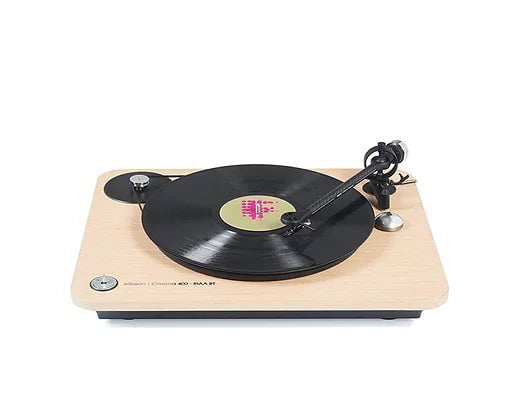
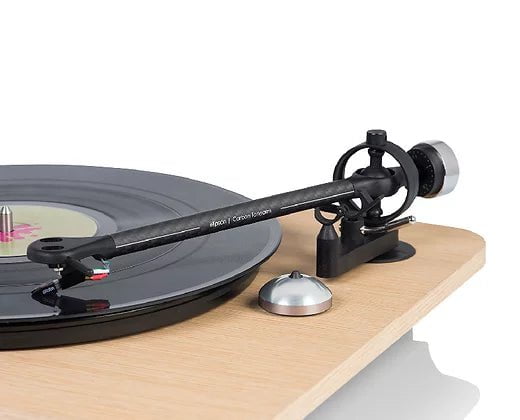
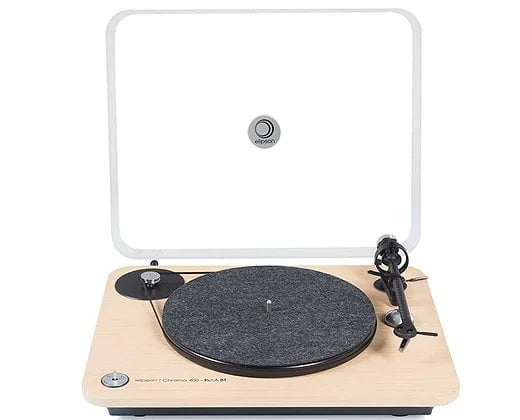
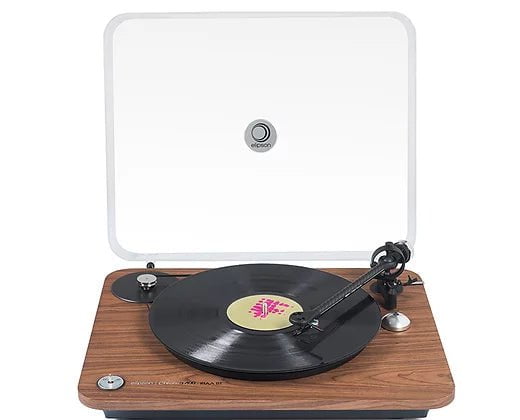
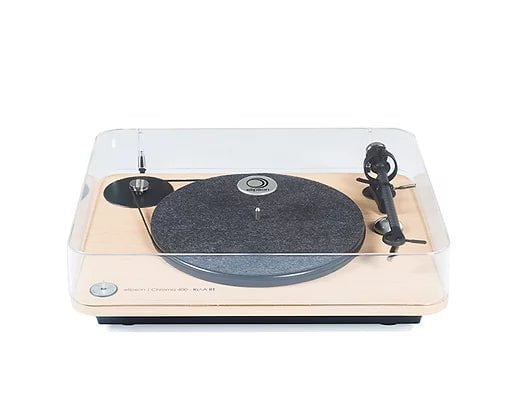
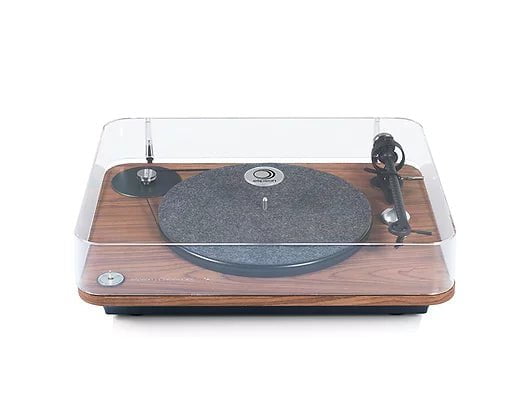
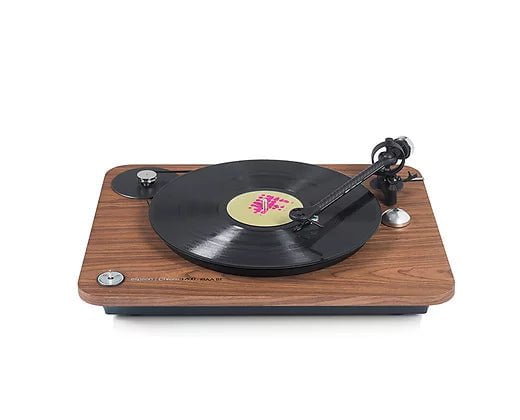
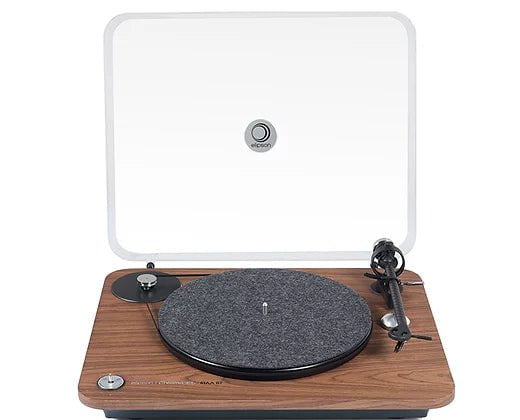
Elipson Chroma 400 Turntable
From France With Love
Assembled in France, the Elipson Chroma 400 RIAA offers the characteristics that contributed to the success of the Omega models, such as the OTT (Orbital Torsion Tonearm) tonearm. It is distinguished by a new axis system for an even more precise rotation, an improved drive motor with optimized damping, a graduated counterweight, as well as the addition of a cue control lever.
Massive gen 2 improvements
The Chroma 400 RIAA is equipped with an Ortofon OM10 cartridge, a very light and high-rigidity carbon arm with a smooth-handling arm lift. The speed selection (33/45/78 rpm) is automatic. It also benefits from a new digital drive motor, allowing a perfect rotation speed while being quieter.
History in the making
In 2014, Elipson launched the first Bluetooth turntable on the market, 100% made in France. 6 years later, Elipson offers a new range, complete, while keeping the strength of the initial design of its turntable and the know-how of its French factory.
RIAA variant
The RIAA variant of the Chroma 400 is RIAA-certified, ensuring a fantastic signal-to-noise ratio and low distortion.
- Bandwidth: 25 Hz-20 kHz (-3 dB/+1 dB)
- Gain: 40,5 dB (MM) , 61 dB (MC)
- Crosstalk: 88 dB (MM) , 78 dB (MC)
- Distorsion: 0,006 % (MM) , 0,05 % (MC)
- Signal-to-noise ratio: 82 dB (MM) , 76 dB (MC)
RIAA BT variant
The RIAA Bluetooth variant of the Chroma 400 is RIAA-certified and features a Bluetooth chip, allowing aptX HD Bluetooth playback from up to thirty feet away.
Specs
- Chassis: MDF wood veneer
- Plate: Pressed steel
- Tonearm: Carbon
- Cartridge: Ortofon OM10
- Adapter: Aluminum
- Electronics: Built-in high-end
- Dimensions: W x H x D : 450 x 120 x 380
- Weight: 5,8 kg
RIAA module
- Bandwidth : 25 Hz-20 kHz (-3 dB/+1 dB)
- Gain : 40,5 dB (MM) , 61 dB (MC)
- Crosstalk : 88 dB (MM) , 78 dB (MC)
- Distorsion : 0,006 % (MM) , 0,05 % (MC)
- Signal-to-noise ratio : 82 dB (MM) , 76 dB (MC)
Bluetooth
- Bluetooth Class 2 : 2,5 mW - 4 dBm
- Range : 10 m
- Bluetooth 2.4 G : 2.402 à 2.480 GHz
Choose options








